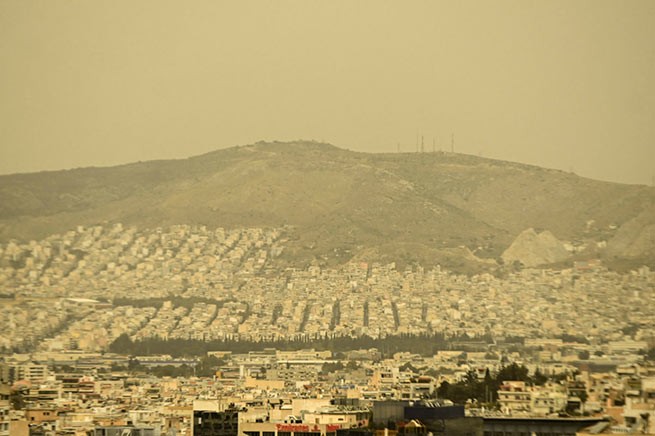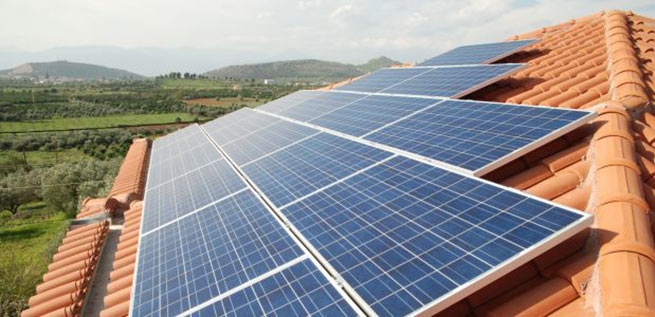In mid-spring next year, the government intends to reduce VAT on photovoltaic and solar water heaters from 24% to 6%.
During 2023 – probably towards the middle of spring – the economic headquarters of the government intends to reduce the VAT on photovoltaic and solar water heaters to 6%. As reported, in order to support the transition to the use of renewable energy sources (RES) and promote the energy autonomy of citizens, the government intends to follow the requirements EUto make self-produced green energy more accessible to consumers.
Last April, the Council of the EU adopted a new decision, according to which VAT on certain goods and services that are compatible with European environmental policy should be reduced from the current 24% to the lowest rate for each member state, i.e. 6% for Greece. These products include photovoltaic and solar water heaters for domestic use.
In particular, under Directive (EU) 2022/542 amending Directives 2006/112/EC and (EU) 2020/285 with regard to VAT rates, 27 countries can reduce VAT on the supply and installation of solar panels (photovoltaic panels and solar water heaters). ) on and near private residential buildings, as well as on residential buildings and other public and non-public buildings used for activities of public interest (e.g. municipal buildings, etc.).
According to government sources, it is considered appropriate to include solar panels in the reduced VAT rate to further promote the possibility of using renewable energy sources, as this is in line with the Union’s environmental commitments for carbonization and the European Green Deal. Thanks to the use of feed-in tariffs for environmentally friendly products, a gradual abolition of preferential treatment for environmentally harmful products is also being prepared.
In addition, the promotion of “photovoltaic panels on rooftops” is mandatory under the national climate law for building permit applications to be submitted from January 1, 2023 for special buildings (those whose main use of more than 50% of the area is not is residential), except for tourist housing and churches, with a coverage area of more than 500 square meters. They will be required to install photovoltaic or thermal solar energy systems in a proportion corresponding to at least 30% coverage.
Accordingly, in the new EU policy, as reflected in the “RePower EU” policy aimed at moving away from Russian fossil fuels, the solar energy strategy is the central pillar of the energy roadmap until 2030. Thus, from 2026 it will be mandatory to install photovoltaic panels in all new public and commercial buildings with an area of more than 250 m2, from 2027 – in existing buildings (public and commercial buildings with an area of more than 250 m2) and from 2029 – in new residential buildings. At the same time, the commission calls for all new buildings to be “solar-ready”, i.e. have ready infrastructure/receivers to receive photovoltaics.
Meanwhile, in order to promote domestic photovoltaic systems, the responsible Ministry of Environment and Energy has recently “opened” (according to law 4951/2022) an additional electrical area, about 2 GW, to receive small photovoltaic installations up to 10 kWp. This new electrical space will be allocated 40% to residential systems, 30% to agricultural systems, and 30% to small commercial systems.
At the same time, the state is working on incentives to support small systems that promote self-generation of energy, as well as self-consumption of produced solar energy (with or without storage).
Some statistics. Germany in September 2022 installed solar power plants with a capacity of 700 megawatts. This includes private, semi-public and state projects. Today, there are more than 56,000 private homes and establishments, 8,000+ municipal facilities and 14,000 planned conversions under consideration and in the queue for installation.
If you consider the fact that 90% of all solar energy in Germany is a subsidized industry, then you can imagine the scale of work and the amount of material spent on the manufacture of these projects.
The biggest problem in Germany today is the huge shortage of solar panels and inverters. Own production facilities stopped in 3 European countries due to inappropriately expensive production (sanctions against Russia). The prices included in the cost of solar panels last year and the year before last have not even reached the 150% mark for 10 months, and production was supported only by subsidies from the state budget. But the budget is not rubber, plus a sharp increase in deductions for the military-industrial complex + 12%, and some enterprises simply froze until better times. In Germany, there is only one left that produces solar panels, and most of the world brands today are imported from China with stickers “made in the EU”, thereby violating the agreement between manufacturers. But commerce is such a thing, not entirely honest even in the EU.
For comparison, in Greece today there are 67,000 applications for the installation of solar power plants from individuals and enterprises, and about 7,000 from government agencies. The current shortage of equipment in Greece is about 73%, and more than 600% of funds. How Greece will resolve these issues in the near future is unclear. No one reduces customs duties and import taxes even in this scarce “green” direction, and there is no own production of solar panels and inverters, and this makes it impossible to own a business either in competition with the European Union or with state monopolies.
The reduction of VAT may help in this matter, if, of course, this decision is combined with a reduction in customs duties. Plus, in many regions of Greece, you still have to beat out permits for the construction of your own solar power plants through the court, which can make a decision at least 6 months after the application is submitted. However, the further rise in electricity prices and fears of power cuts work as a powerful incentive for the development of photovoltaic systems. And we hope that the authorities will meet the needs of the population in this matter.
PS If you have the desire and money to install a solar power plant up to 30 kilowatts, call or write +30 697 199 7057 (Viber/Whatsapp/Telegram), we will help you resolve all issues.







More Stories
Highway E65: how long does the Athens-Kalambaka journey take, toll
"Tax" for fire protection of real estate
The first non-state medical school in Greece